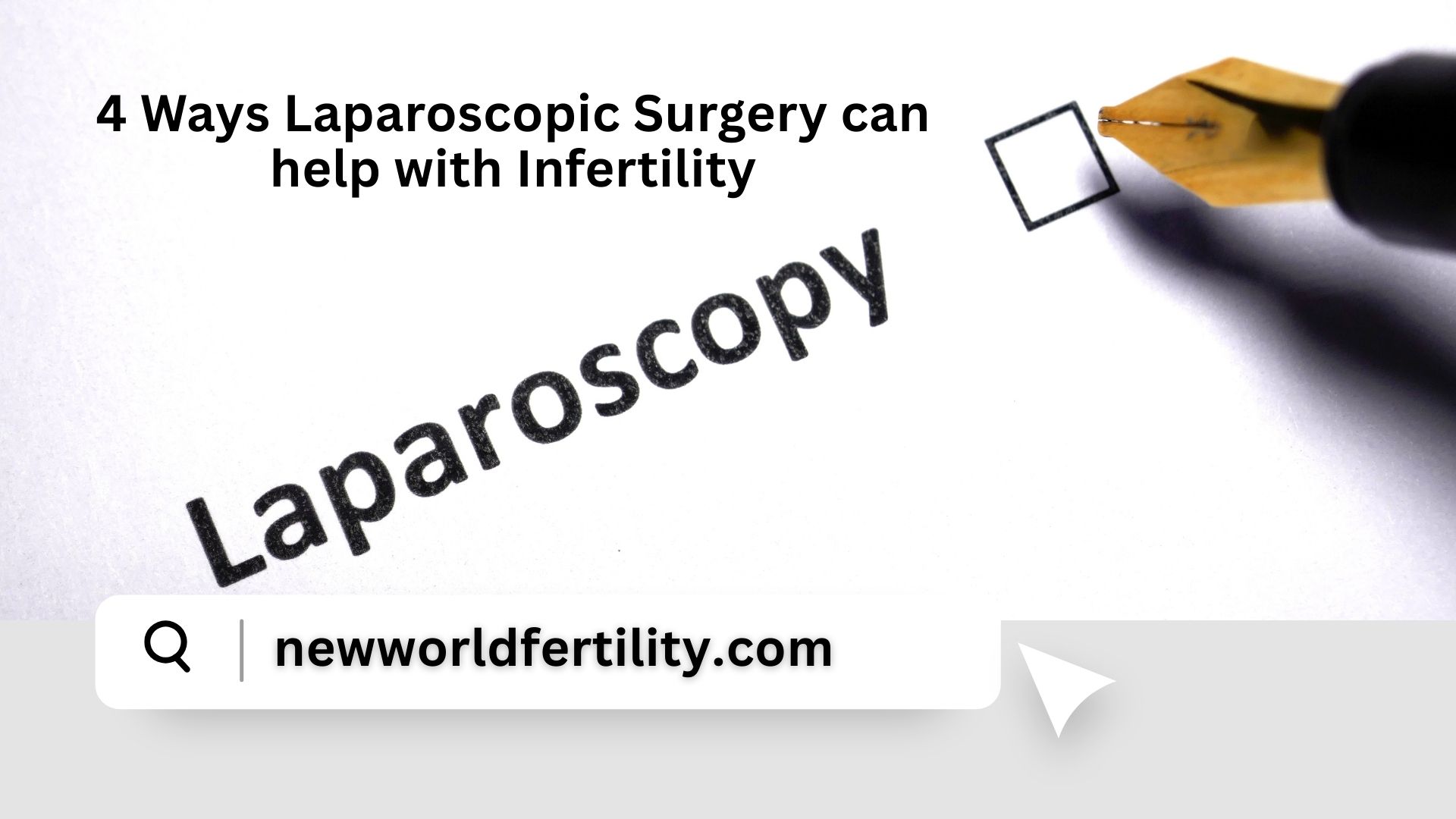4 Ways Laparoscopic Surgery Can Help with Infertility
Laparoscopic surgery has revolutionized the field of gynecology, offering minimally invasive solutions for a variety of conditions, including infertility. This advanced surgical technique involves small incisions, allowing for a less invasive and more efficient approach to diagnosing and treating fertility issues.
1. Diagnosing the Root Cause of Infertility
Endometriosis: Laparoscopy is an effective way to diagnose endometriosis, a condition where tissue similar to the uterine lining grows outside the uterus. Endometriosis can cause pelvic pain, irregular bleeding, and infertility.
Fallopian Tube Blockages: Laparoscopy can help identify and address fallopian tube blockages, which can prevent eggs from reaching the uterus for fertilization.
Uterine Abnormalities: Laparoscopic surgery can reveal uterine abnormalities, such as fibroids or polyps, that may interfere with fertility.
Pelvic Adhesions: Adhesions, or scar tissue, can form in the pelvic area and obstruct the reproductive organs. Laparoscopy can help identify and release adhesions.
2. Treating Endometriosis
Removing Endometrial Tissue: Laparoscopic surgery allows for precise removal of endometrial tissue that has grown outside the uterus. This can help reduce pelvic pain and improve fertility.
Treating Ovarian Cysts: Endometriosis often leads to the formation of ovarian cysts. Laparoscopy can be used to remove or drain these cysts.
3. Reversing Fallopian Tube Blockages
Salpingostomy: In some cases, laparoscopic surgery can be used to repair damaged fallopian tubes and restore their function. This procedure, known as salpingostomy, can improve the chances of conception.
4. Removing Uterine Abnormalities
Myomectomy: Laparoscopic myomectomy is a procedure to remove uterine fibroids, non-cancerous growths that can affect fertility.
Polypectomy: Laparoscopic polypectomy can be performed to remove polyps, small growths that may interfere with fertility.
Benefits of Laparoscopic Surgery
Minimally Invasive: Laparoscopic surgery involves smaller incisions, resulting in less pain, a shorter recovery time, and reduced scarring compared to traditional open surgery.
Faster Recovery: Patients typically return home within a day or two after laparoscopic surgery, allowing for a quicker recovery and return to normal activities.
High Success Rates: Laparoscopic surgery has a high success rate in diagnosing and treating infertility issues.
Reduced Risk of Complications: The minimally invasive nature of laparoscopic surgery reduces the risk of complications compared to open surgery.
Choosing the Right Fertility Specialist
Selecting a qualified fertility specialist is crucial for successful laparoscopic surgery and subsequent fertility treatment. At New World Fertility Centre, our experienced team of fertility specialists has extensive expertise in laparoscopic surgery and can provide personalized guidance and support.
Conclusion
Laparoscopic surgery offers a valuable tool for diagnosing and treating infertility. By addressing underlying issues such as endometriosis, fallopian tube blockages, and uterine abnormalities, laparoscopic surgery can significantly improve your chances of conceiving. If you're struggling with infertility, consult with a fertility specialist to explore whether laparoscopic surgery is right for you.
Frequently Asked Questions(FAQs)
1. What is laparoscopic surgery?
Laparoscopic surgery is a minimally invasive surgical procedure that uses small incisions and a camera to diagnose and treat various medical conditions, including infertility.
2. Is laparoscopic surgery painful?
Laparoscopic surgery is generally less painful than traditional open surgery due to the smaller incisions. You may experience some discomfort after the procedure, but pain medications can help manage it.
3. How long is the recovery time for laparoscopic surgery?
Recovery time for laparoscopic surgery is typically shorter than for open surgery. Most patients can return home within a day or two and resume normal activities within a few weeks.
4. Are there any risks associated with laparoscopic surgery?
As with any surgical procedure, there are potential risks associated with laparoscopic surgery. These risks include bleeding, infection, and damage to nearby organs. However, the risks are generally low, especially when performed by experienced surgeons.
5. Can laparoscopic surgery guarantee fertility?
While laparoscopic surgery can help address underlying causes of infertility, it cannot guarantee conception. The success rate depends on various factors, including the specific condition being treated and the overall health of the patient.

 Sep-11-2025
Sep-11-2025